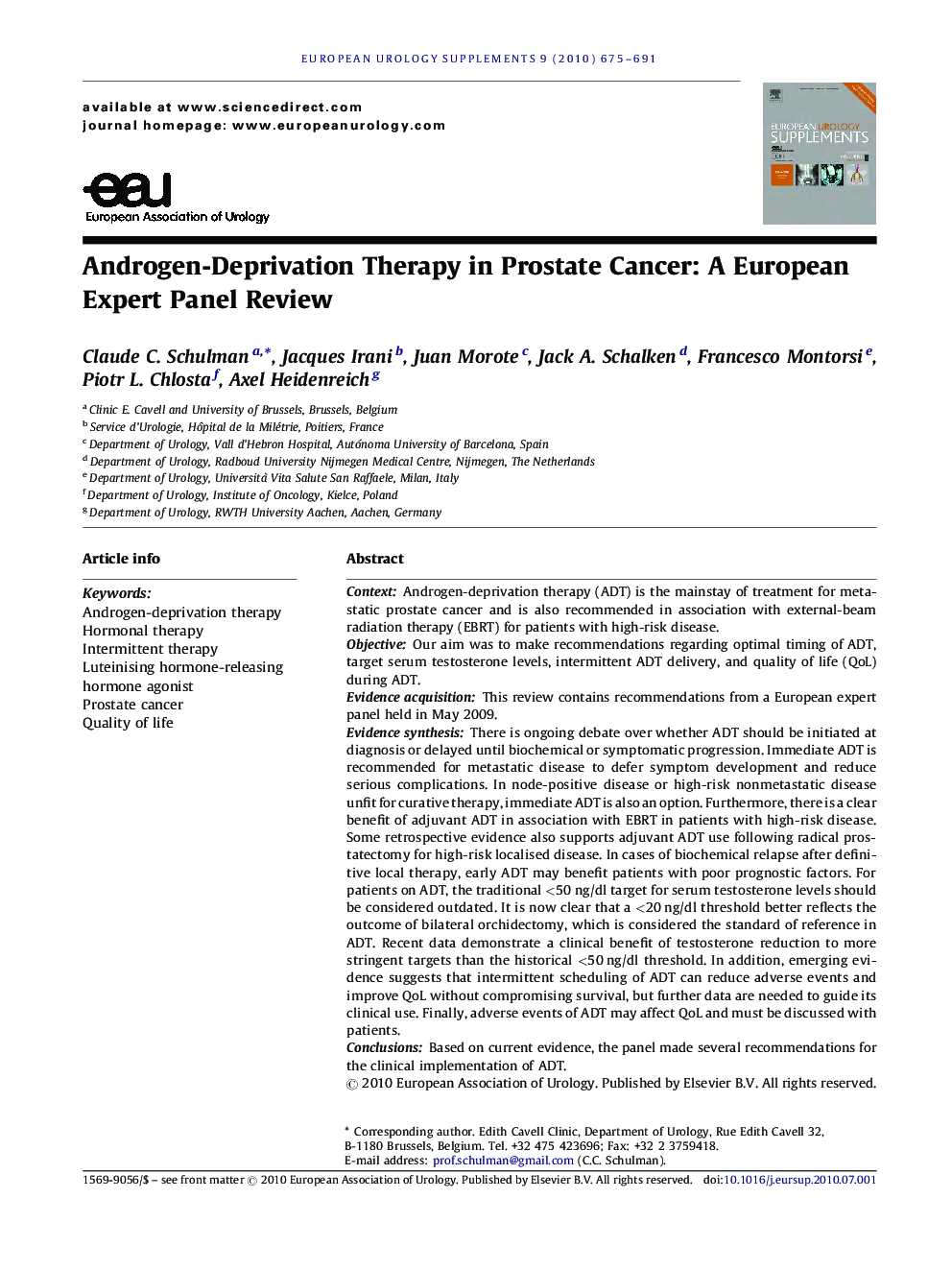| کد مقاله | کد نشریه | سال انتشار | مقاله انگلیسی | نسخه تمام متن |
|---|---|---|---|---|
| 3933497 | 1253350 | 2010 | 17 صفحه PDF | دانلود رایگان |

ContextAndrogen-deprivation therapy (ADT) is the mainstay of treatment for metastatic prostate cancer and is also recommended in association with external-beam radiation therapy (EBRT) for patients with high-risk disease.ObjectiveOur aim was to make recommendations regarding optimal timing of ADT, target serum testosterone levels, intermittent ADT delivery, and quality of life (QoL) during ADT.Evidence acquisitionThis review contains recommendations from a European expert panel held in May 2009.Evidence synthesisThere is ongoing debate over whether ADT should be initiated at diagnosis or delayed until biochemical or symptomatic progression. Immediate ADT is recommended for metastatic disease to defer symptom development and reduce serious complications. In node-positive disease or high-risk nonmetastatic disease unfit for curative therapy, immediate ADT is also an option. Furthermore, there is a clear benefit of adjuvant ADT in association with EBRT in patients with high-risk disease. Some retrospective evidence also supports adjuvant ADT use following radical prostatectomy for high-risk localised disease. In cases of biochemical relapse after definitive local therapy, early ADT may benefit patients with poor prognostic factors. For patients on ADT, the traditional <50 ng/dl target for serum testosterone levels should be considered outdated. It is now clear that a <20 ng/dl threshold better reflects the outcome of bilateral orchidectomy, which is considered the standard of reference in ADT. Recent data demonstrate a clinical benefit of testosterone reduction to more stringent targets than the historical <50 ng/dl threshold. In addition, emerging evidence suggests that intermittent scheduling of ADT can reduce adverse events and improve QoL without compromising survival, but further data are needed to guide its clinical use. Finally, adverse events of ADT may affect QoL and must be discussed with patients.ConclusionsBased on current evidence, the panel made several recommendations for the clinical implementation of ADT.
Journal: European Urology Supplements - Volume 9, Issue 7, October 2010, Pages 675–691